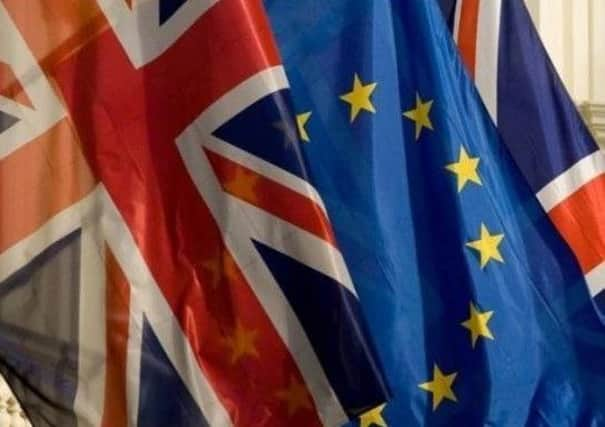The EU is hardly a '˜disastrous union'


I remember customs checks and passport control when travelling to do exchanges with French and German families in the late 50s, when I asked myself: “Why were we all fighting each other 15 years ago?”
The evolution of the Common Market into the European Union has given our continent an unprecedented seven decades of peace. Former enemies have become friends, peace was achieved in Northern Ireland, and former dictatorships have been supported in their evolution into democracies.
This can hardly be called a “disastrous union”.
Advertisement
Hide AdAdvertisement
Hide AdWe are not ruled by “unelected dictators in Brussels”. Our prime minister and ministers represent us in the European Council which nominates members of the Commission, the Civil Service of the EU, for a five- or 10-year period; they also have to be approved by the directly elected Members of the European Parliament (which actually dismissed the Commission in the 1990s).
Dictators do not face this level of democratic accountability. Our ministers and MEPs vote on proposals for legislation to ensure a level playing field for workers’ rights, environmental protection, consumer protection, food safety etc. within the Single Market. Other decisions on tax, health, education, benefits etc. are made at Westminster. We trade with many other countries, often with trade agreements negotiated through the EU. Much of our inward investment from outside the EU is to gain access to the wider Internal Market.
If we leave both the Internal Market and the Customs Union this will put us at a huge disadvantage during the many years it will take to negotiate new trade agreements as an individual country. The wider world is less stable at present than for several decades, and we are adding to that instability. I regret that the decision of the referendum in 1975, which voted 60 per cent to 40 per cent to remain in the then Common Market, is now being overturned by the very narrow majority of 51.9 per cent to 48.1 per cent. I hope very much that we can remember that we are negotiating with friends and allies, and that “we cannot have our cake and eat it” as many seemed to promise during the referendum campaign.
Veronica Hardstaff
Northfield Court, S10